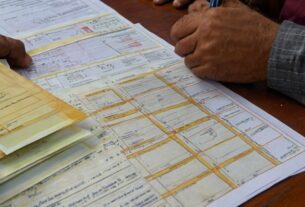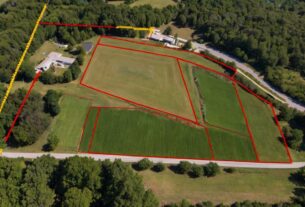Understanding Property Valuation in Nepal: Process, Methods, and Insights
Property valuation is the process of determining the monetary value of a property based on its characteristics, location, and market trends. In Nepal, property valuation plays a critical role in real estate transactions, taxation, loans, and investments. Whether you’re a buyer, seller, or investor, understanding property valuation can help you make informed decisions.
Why Is Property Valuation Important?
- Transaction Transparency: Determines the fair price for buyers and sellers.
- Loan Approval: Banks use property valuation to determine the loan-to-value ratio.
- Taxation: Helps calculate taxes like capital gains tax and property registration fees.
- Investment Decisions: Assists in evaluating property appreciation potential.
Methods of Property Valuation in Nepal
Several methods are used for property valuation based on the purpose and type of property:
1. Comparative Market Analysis (CMA):
- Description: Compares similar properties sold recently in the same area.
- Best For: Residential properties in established neighborhoods.
- Example: A 2-story house in Pokhara might be compared to similar properties nearby to estimate its value.
2. Cost Approach:
- Description: Calculates the cost of land plus construction expenses minus depreciation.
- Best For: Newly constructed properties or buildings.
- Example: Estimating the current market value of materials and construction for a property in Kathmandu.
3. Income Capitalization Approach:
- Description: Determines the value based on the property’s income-generating potential, such as rent.
- Best For: Commercial properties or rental houses.
- Example: A rental property in Lalitpur earning Rs. 50,000 per month might be valued based on its yearly rental income.
4. Government Valuation:
- Description: The official rate set by local authorities, often much lower than the market rate.
- Best For: Legal and taxation purposes.
- Example: Used to calculate registration fees and transfer taxes.
The Process of Property Valuation in Nepal
The process typically involves the following steps:
- Inspection:
- A certified valuer or bank representative inspects the property.
- Key factors like location, size, condition, and accessibility are noted.
- Document Verification:
- Legal documents such as land ownership certificates (Lal Purja), blueprints, and tax clearance records are checked.
- Market Research:
- Recent sales data and market trends in the area are analyzed.
- Valuation Report Preparation:
- The valuer prepares a detailed report, including estimated value, photographs, and the method used.
How Banks Conduct Property Valuation
When you apply for a loan in Nepal, banks follow these steps to value your property:
- Hire a Certified Valuer:
- Banks appoint independent valuers to assess the property.
- Focus on Government Valuation:
- The bank uses the government-declared value as a baseline.
- Typically, loans are provided for 50%-70% of the government valuation.
- Site Visits:
- The valuer inspects the site for location, accessibility, and marketability.
- Loan Approval:
- Based on the valuation, banks approve loans within a safe margin to avoid risks.
The 30/70 Rule in Nepal’s Real Estate
In Nepal, the government valuation is often 30% of the actual market valuation. This significant gap exists due to outdated government data and underreported transaction values for tax benefits.
- Government Valuation (30%): Used for taxation and legal purposes.
- Market Valuation (70%): The real price buyers and sellers agree on.
Implications:
- Buyers benefit from reduced tax costs.
- Sellers declare lower profits to minimize capital gains tax.
- Banks provide loans based on the lower government valuation, leaving buyers to arrange the rest.
Challenges in Property Valuation in Nepal
- Lack of Standardization: No uniform valuation criteria across valuers.
- Market Volatility: Rapid urbanization affects property prices unpredictably.
- Tax Avoidance Practices: Buyers and sellers often underreport values.
Conclusion
Let us make your property journey smooth and rewarding! Contact us today!



